I recently moved to machine stitch after years of doing hand stitch. Honestly, machine stitches make the whole work quick and easy. But is hand sewing stronger than machine? This question has been popping in my mind for so long.
So I decided to do some research about it! And it turns out that-
Yes, Machine sewing is generally stronger and more durable than hand sewing because it uses tighter, more consistent stitches with stronger thread tension.But wait: hand sewing can actually be stronger in certain situations.
Wait, what? Yep. Hand stitching has its own set of strengths. So why does this happen? And when exactly does hand sewing beat the machine?
Let’s talk about the details.
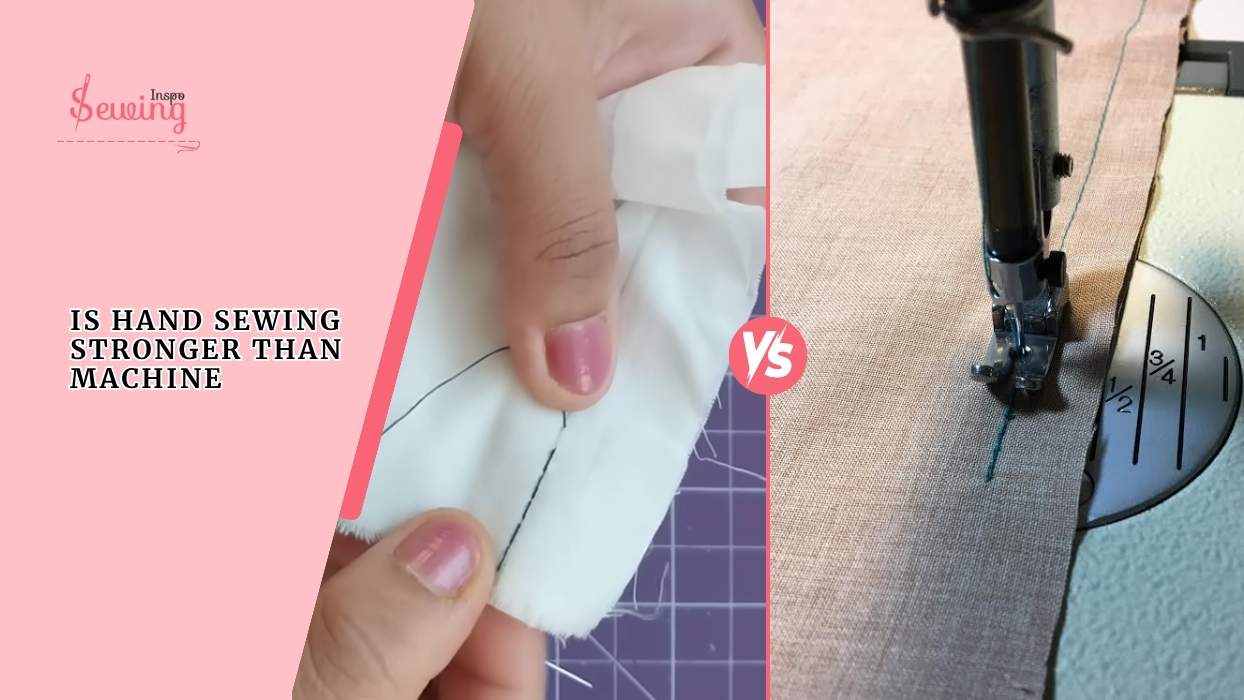
Table of Contents
The Difference Between Hand Sewing (Vs Machine)
Hand sewing is done manually with a needle and thread, while machine sewing uses a sewing machine for faster, more uniform stitching.
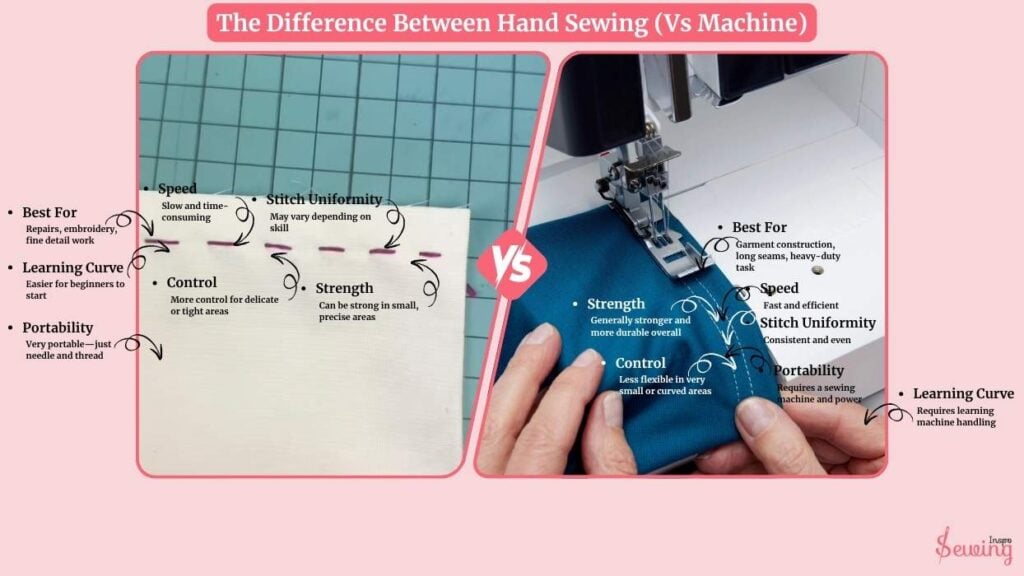
However, there are more differences between them. For example,
| Feature | Hand Sewing | Machine Sewing |
| Speed | Slow and time-consuming | Fast and efficient |
| Stitch Uniformity | May vary depending on skill | Consistent and even |
| Strength | Can be strong in small, precise areas | Generally stronger and more durable overall |
| Control | More control for delicate or tight areas | Less flexible in very small or curved areas |
| Best For | Repairs, embroidery, fine detail work | Garment construction, long seams, heavy-duty tasks |
| Learning Curve | Easier for beginners to start | Requires learning machine handling |
| Portability | Very portable—just needle and thread | Requires a sewing machine and power |
What Are The Similarities Between Hand Sewing And Machine Sewing?
Both are quite different from each other, but they still share one commonality. That is-
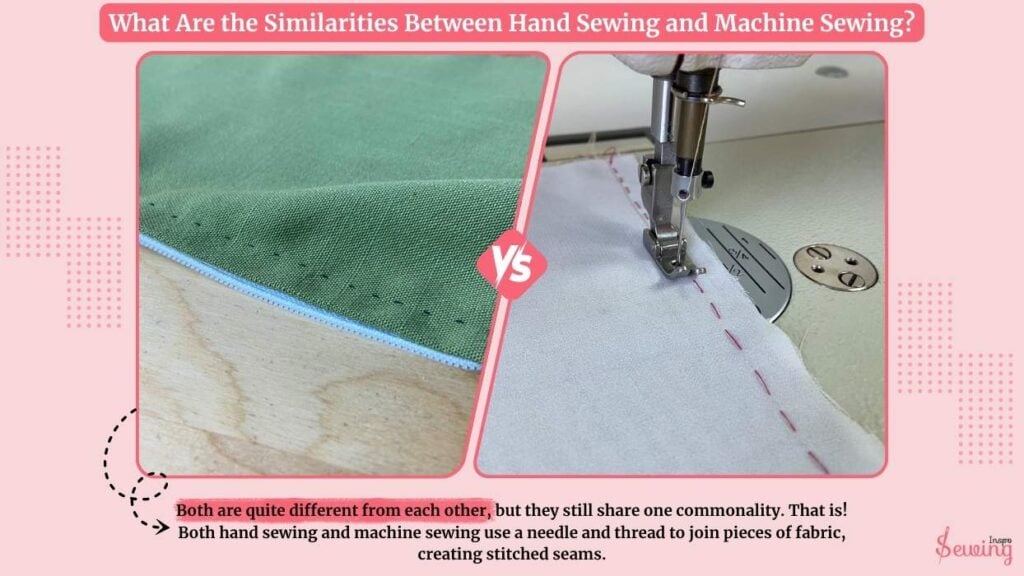
Both hand sewing and machine sewing use a needle and thread to join pieces of fabric, creating stitched seams.
Is Hand Sewing Stronger Than Machine?
Yes, Machine stitching is stronger because machines are accurate. The tension is even, the stitches are tight and uniform. Additionally, they utilize two threads (top and bobbin) that lock together securely. You just can’t match that consistency by hand, especially over long seams.
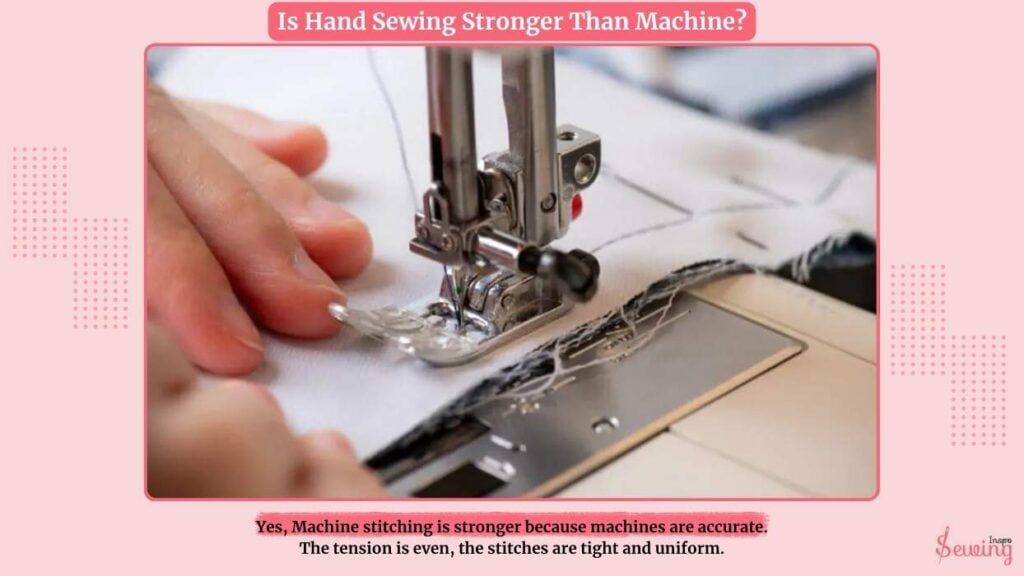
But, can hand sewing be strong?
Yes, hand sewing still has its strengths. For example,
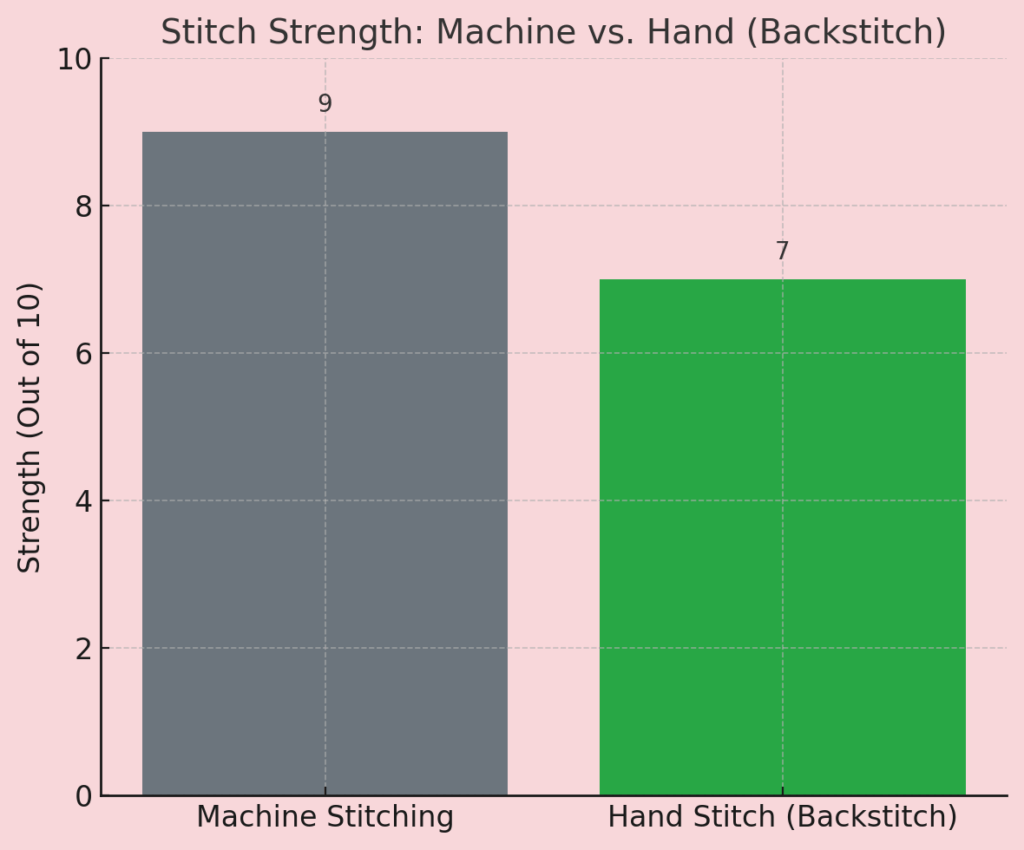
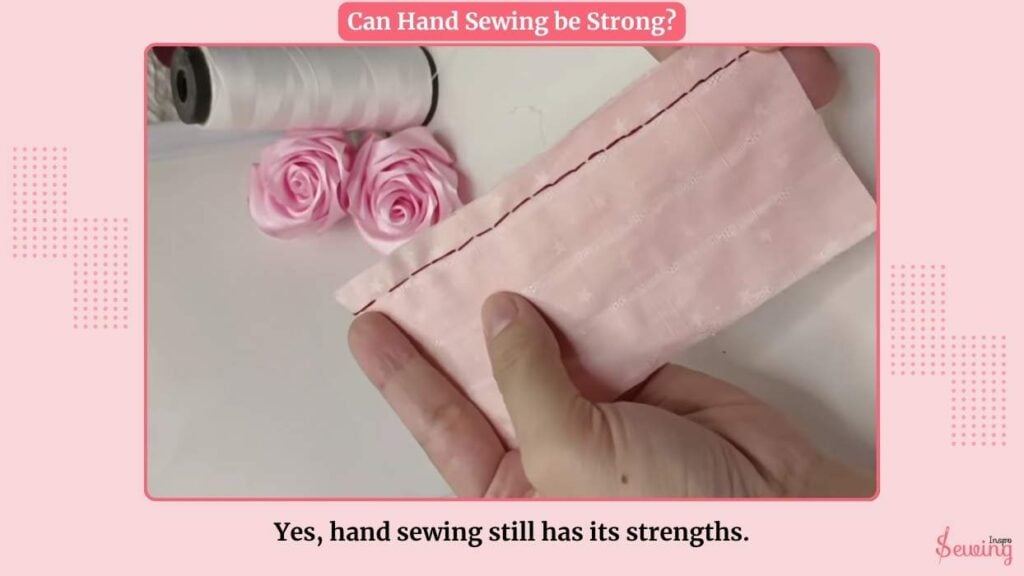
The backstitch is seriously tough & it is considered the strongest stitch. It actually holds up better than a basic running stitch from a machine. And when you’re fixing something small, working with delicate fabric, or sewing in a weird angle the machine can’t reach, hand stitching wins. You’ve got more control, and you can be super detailed.
So yeah, machine sewing is stronger most of the time.
But hand sewing still has its moments, especially when it comes to detail work or special repairs. It’s not one being better than the other. It’s about using the right one for the job.
If you want to learn more about both stitches, then watch this amazing video by Machineomatic. They explained & compared both stitches so clearly.
Hand Sewing vs Machine Sewing | Mastering the Art of Sewing!?
What Are The Benefits Of Using A Sewing Machine?
After years of hand stitching, I didn’t realize just how much time and effort I was spending until I finally sat down at a machine.
So, what’s the big deal? What are the actual benefits of using a sewing machine?
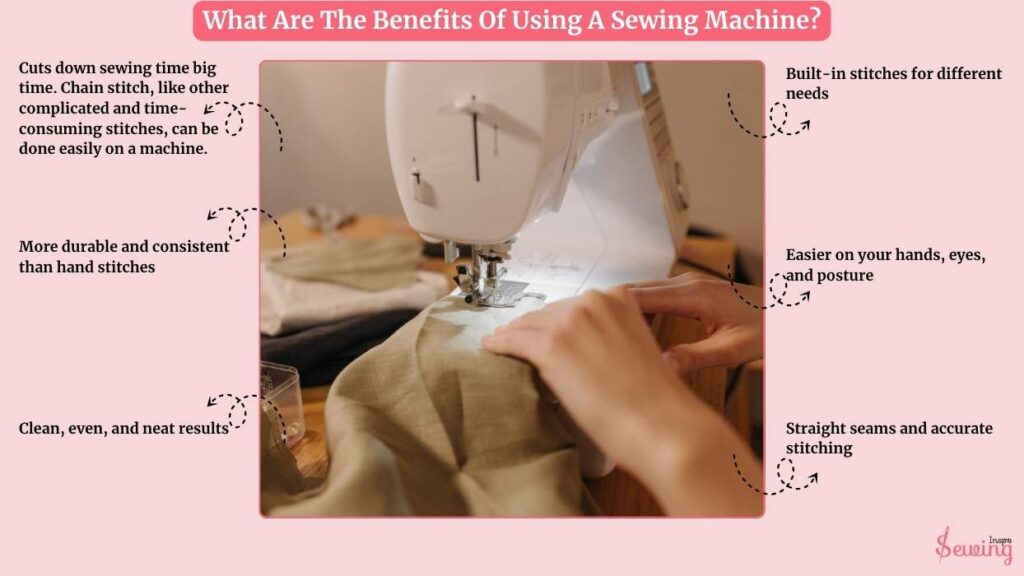
- Cuts down sewing time big time. Chain stitch, like other complicated and time-consuming stitches, can be done easily on a machine.
- More durable and consistent than hand stitches, like machine smocked vs hand smocked.
- Clean, even, and neat results
- Built-in stitches for different needs
- Easier on your hands, eyes, and posture
- Straight seams and accurate stitching
Disadvantages Of Sewing Machine
Machine stitches are strongest. But that doesn’t mean it only has advantages. There are a few disadvantages, too.
- Quality machines aren’t cheap.
- Threading, tension, and settings can be tricky.
- Hand sewing is better for tiny, detailed fixes. The machine can barely do quilt stitching.
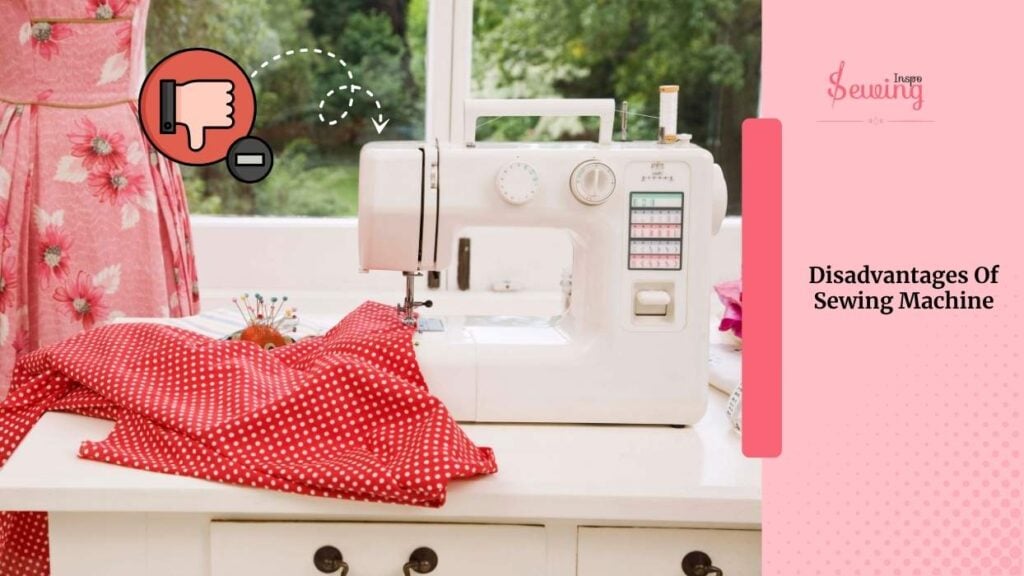
- Most machines are bulky and need electricity.
- Needs regular cleaning, oiling, and occasional servicing.
- It can be too rough on delicate or lightweight materials.
Also, learn how to tie off a stitch on a sewing machine; otherwise, the stitches will fall off, too.
Is Hand Sewing Better Than Machine Sewing?
Well, it depends on what you’re doing. If we’re talking speed and efficiency, machine sewing wins. Hands down. It’s faster.
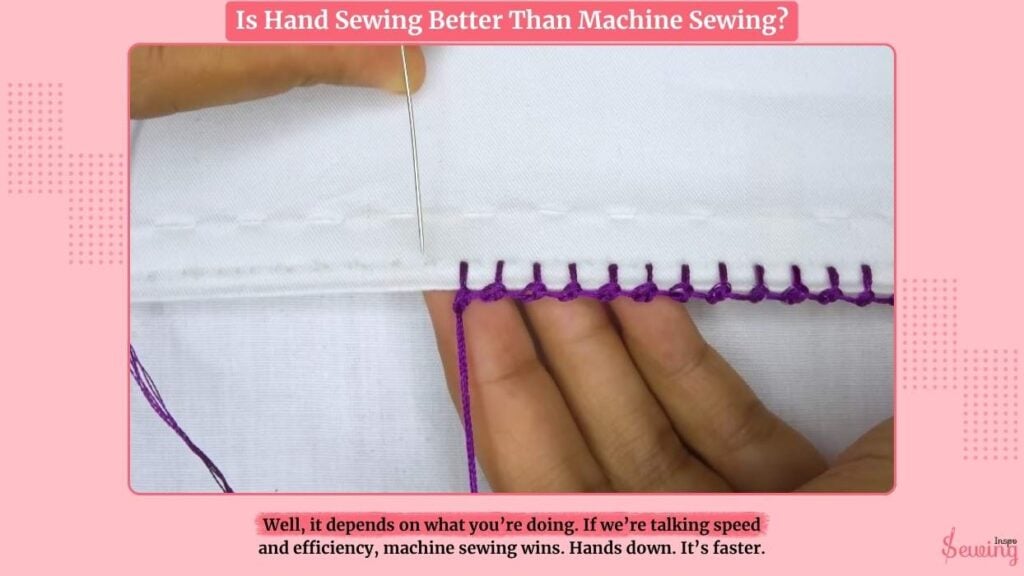
The stitches are super consistent, and it can handle long seams or thick layers without breaking a sweat. Honestly, once you get used to a machine, it’s hard to go back.
But that doesn’t mean hand sewing is worse. Not even close.
Hand stitching gives you control. You can slow down, take your time, and really work those tricky spots—buttons, repairs, tiny seams, delicate fabrics, corners where the machine just can’t reach.
Basically, hand stitch doesn’t have any boundaries. You can do whatever you wanna do with all kinds of decorative stitches.
Plus, there’s something really satisfying about stitching something by hand. It’s personal. Intentional. There’s a rhythm to it that machines just can’t replicate.
So, is hand sewing better?
Sometimes, yes.
Is machine sewing better?
Also yes.
They each have their place. One’s not better than the other. They’re just different tools for different kinds of work.
What Techniques Improve Hand Sewing Speed And Accuracy?
‘Hand stitches are too slow a process, ’ that’s what most sewing enthusiasts complain about. Honestly, they are not wrong either. Hand sewing is a slow & steady process.
But there are a few tricks that can boost the speed.
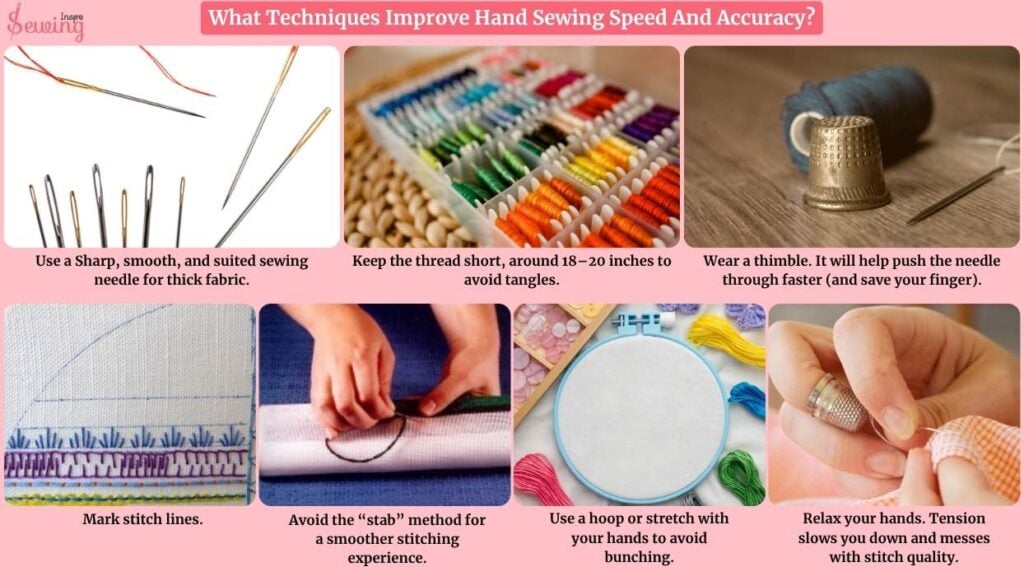
- Use a Sharp, smooth, and suited sewing needle for thick fabric.
- Keep the thread short, around 18–20 inches to avoid tangles.
- Wear a thimble. It will help push the needle through faster (and save your finger).
- Mark stitch lines.
- Avoid the “stab” method for a smoother stitching experience.
- Use a hoop or stretch with your hands to avoid bunching.
- Relax your hands. Tension slows you down and messes with stitch quality.
So hand sewing can be slow, but with a few tweaks and some practice, you can move faster without sacrificing neatness. And honestly? Once you find your groove, it becomes kind of meditative.
Frequently Asked Questions
When do you use a double thread when hand sewing?
You’ll want to use a double thread when you need extra strength, like sewing on buttons, repairing seams, or working with thicker fabrics. Doubling the thread gives your stitches more hold.
Why are some hand-sewn crafts stronger than machine-sewn ones?
It comes down to control and technique. Hand sewing allows you to place each stitch precisely where it needs to be and use stronger stitches, such as the backstitch or saddle stitch, which can sometimes outperform basic machine stitches.
Sewing leather goods by hand or by sewing machine?
For leather, hand sewing is usually stronger, especially when you use a saddle stitch. This stitch locks from both sides and won’t unravel easily, even if one side breaks. Machines are faster, but they use a lockstitch that can pull out if the thread breaks.
Conclusion
So the answer is that hand sewing is stronger than machine sewing, yes, machine stitching is stronger.
But that doesn’t mean hand stitch is the weakest one. It is still strong but in the right place & right technique.


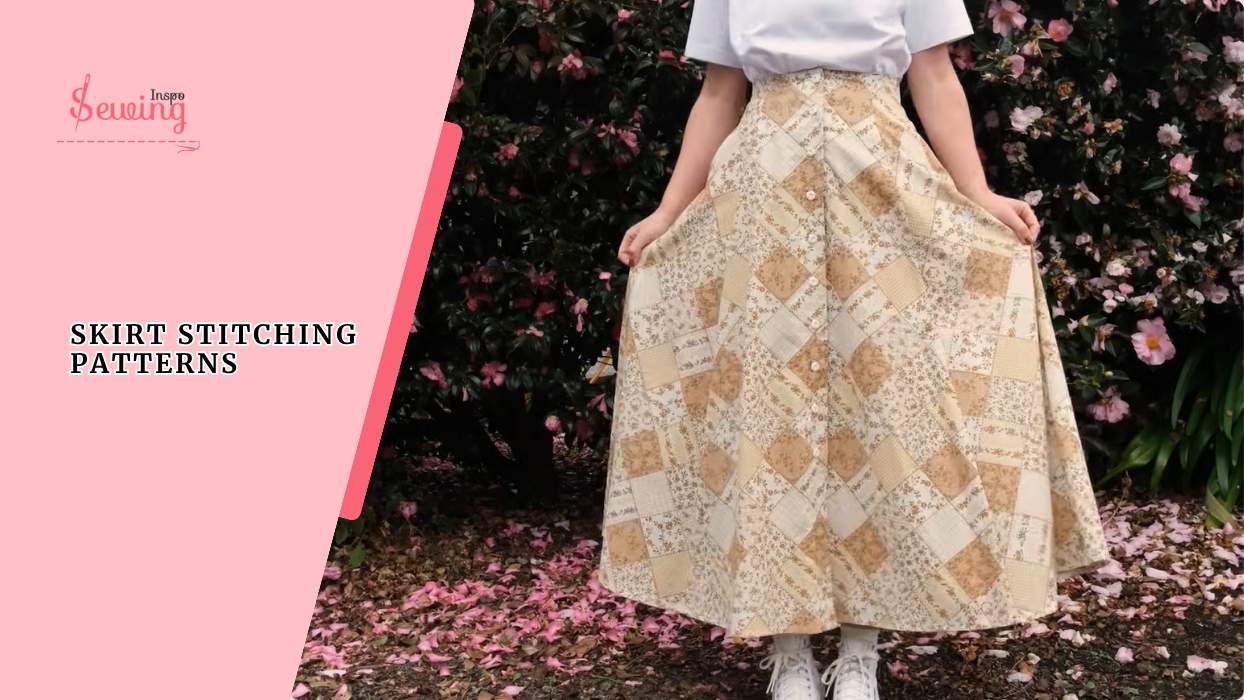
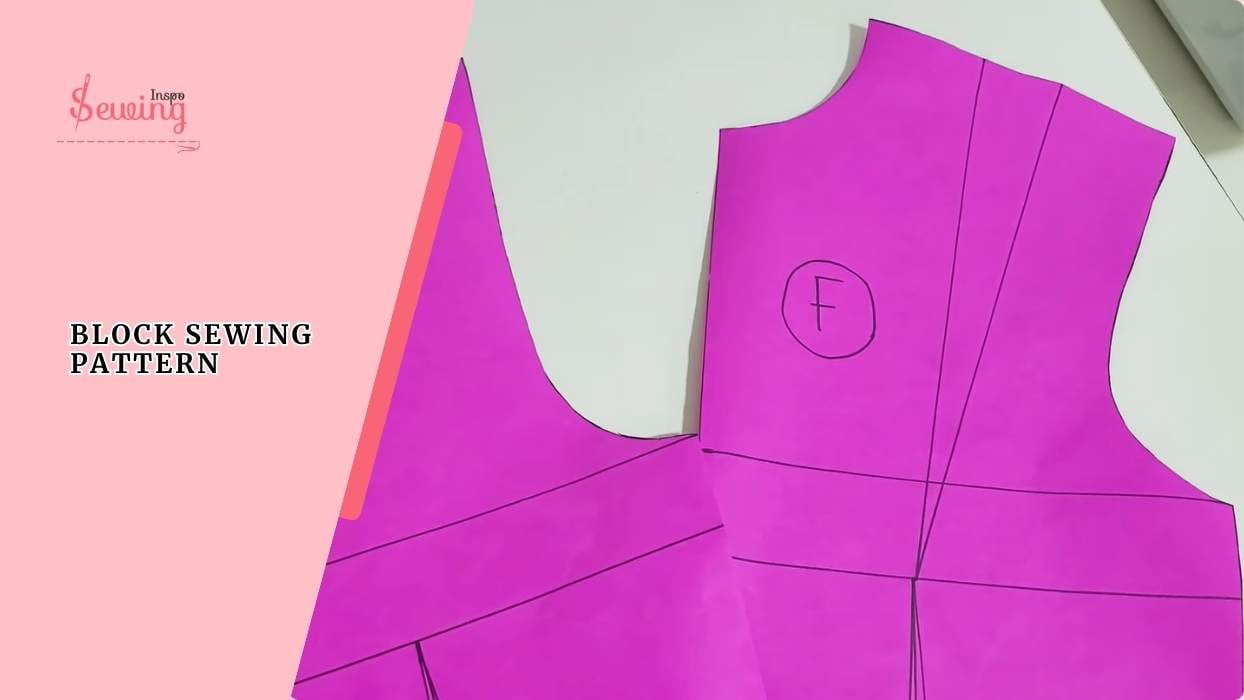
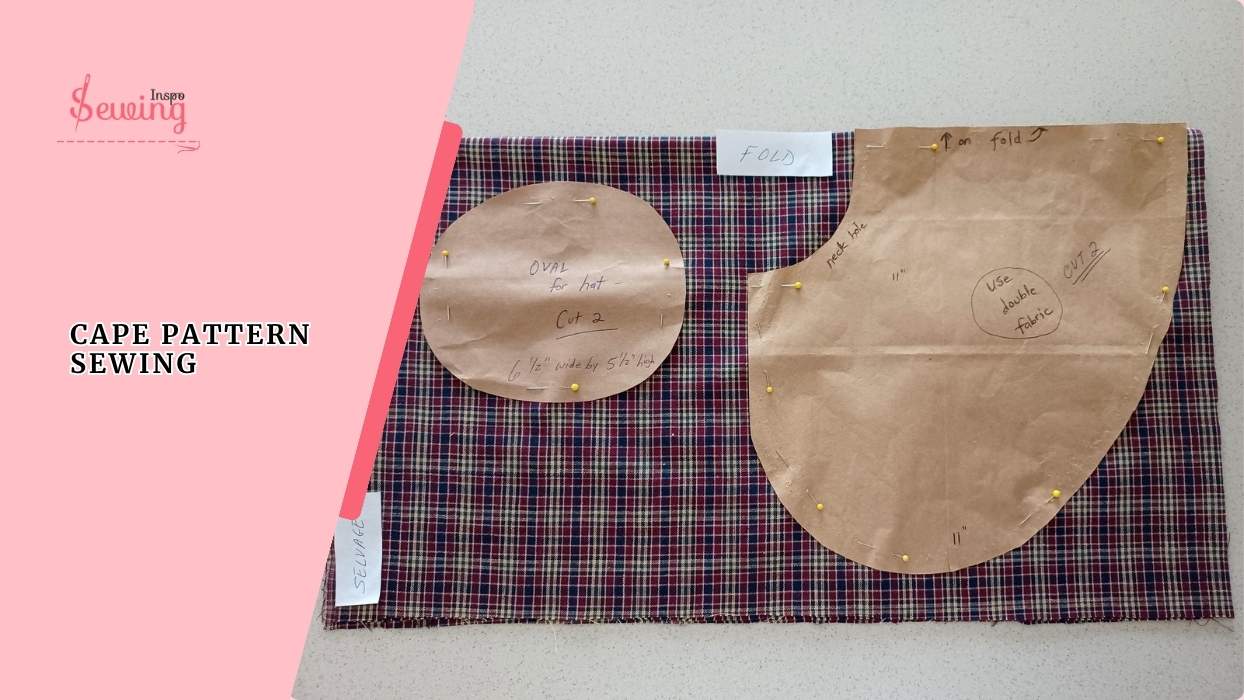
Leave a Reply